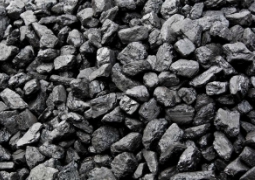
“It cannot be that the public hearings on the Draft Integrated Resource Plan (IRP) 2018 are held in Cape Town. These hearings need to go to priority areas, where communities are affected by coal mining,” these were the sentiments expressed by Mr Zethu Hlatshwayo.
Mr Hlatshwayo gave his oral submission during the public participation process of the Draft IRP at Parliament today.
The Chairperson for the committee, Mr Fikile Majola, gave an opportunity for the public to make oral submissions on the Draft IRP.
“The committee should come and visit Ermelo where I come from, it is an area which has Eskom’s coal-fired power stations. Sasol is there, we also have a timber factory but the tallest building in our area is only three metres. We are underdeveloped and poor but we are rich in minerals. We are not employable because we fail health tests because of environmental effects as result of the coal in Ermelo, and the conditions we live in,” said Mr Hlatshwayo.
“Electricity is unaffordable in Ermelo yet we have Eskom and coal mines,” he said. Throughout the hearings, members of the community questioned what the Draft IRP is doing to address the high cost of electricity which affects mostly poor people.
A community member reiterated and said the public hearings should go to the various provinces in areas that are highly affected by carbon emissions. David from Sebekong said he came to represent the four million people of his community, especially young people who are medically unfit because of carbon emissions. The public participation process cannot take place in Cape Town where the is clean air, he said.
During the oral submissions, the public lamented the committee for conducting the hearings in Parliament, presenter after presenter said the process needs to be taken to where ordinary people are, and to those affected by the effects of coal mining.
Bishop Jeff Davids said coal mining raises carbon emissions and it is crucial for government to look into the future for a habitable planet. “Release renewable energy and stop coal,” said Bishop Davids.
Mr Neville van Roy from the Karoo said they are not in support of coal mining as they have seen the effects and the damage it has done to communities. “What is concerning for us is that no rehabilitation takes place, mines do not clean up afterwards,” said Mr Van Roy. As an emerging farmer from the Karoo, Mr Van Roy said big companies came in and said there is uranium and shale gas in the Karoo.
“This was in our backyard and as farmers we had to educate ourselves about mining and its implications. What we found was shocking, in an area we visited in Witbank, there is underdevelopment, people living in extreme poverty and the failure by mining companies to rehabilitate mines, which exposes communities and young children to dangerous situations,” he said.
Submissions by the public raised the environmental impact that coal mining has and the effects on climate change. The public called for environmental policies that need to be passed, and for government to move away from fossil fuels.
The Department of Energy received criticism on the Draft IRP document, people felt it was extremely technical, the public wanted a user-friendly document.
By Yoliswa Landu
23 October 2018

